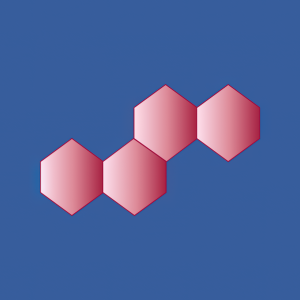Corcept Announces Positive Results in Treatment Phase of CATALYST Trial in Patients With Hypercortisolism (Cushing’s Syndrome) and Difficult-to-Control Diabetes
CATALYST is a prospective, Phase 4 study with two parts. The first part assessed the prevalence of hypercortisolism by screening 1057 patients with difficult-to-control type 2 diabetes, defined as hemoglobin A1c greater than 7.5 percent despite receiving optimal therapies, including GLP-1 agonists. Of these patients, 23.8 percent were identified as having hypercortisolism and were eligible to enter CATALYST’s treatment phase, in which 136 patients were randomized, 2:1, to receive either Korlym or placebo for 24 weeks. The primary endpoint was the reduction in hemoglobin A1c between these groups.
CATALYST met its primary endpoint. Patients who received Korlym exhibited a clinically meaningful and statistically significant improvement in hemoglobin A1c, with a decrease from baseline of 1.47 percent as compared to a decrease of 0.15 percent in patients who received placebo (placebo-adjusted reduction of 1.32 percent; p-value: < 0.0001). The safety profile of Korlym in this study was consistent with the medication’s label and no new side effects or adverse events were identified.
Complete results from CATALYST will be presented at a medical conference next year.
“CATALYST’s first part showed that hypercortisolism is much more common than previously assumed. The results announced today show that Korlym is a safe and effective treatment option,” said Ralph DeFronzo, MD, chief of the Diabetes Division and professor of medicine at UT Health San Antonio and CATALYST study investigator. “Reductions in hemoglobin A1c of this magnitude are of great clinical benefit. They are particularly compelling, given that the patients in CATALYST had been receiving our best therapies – but continued to experience serious disease. These findings should prompt expanded screening for hypercortisolism, more effective treatment and better health outcomes for patients who are struggling today.”
“The results of the CATALYST study will enable physicians to more accurately diagnose and treat patients with hypercortisolism - a serious and deadly disease,” said Bill Guyer, PharmD, Corcept’s Chief Development Officer. “One in four patients with difficult-to-control type 2 diabetes have hypercortisolism and Korlym, a cortisol modulator, was highly effective in controlling hyperglycemia in this patient population.”
About Hypercortisolism (Cushing’s Syndrome)
Hypercortisolism is caused by excessive activity of the hormone cortisol. Symptoms vary, but most patients experience one or more of the following manifestations: hypertension, central obesity, elevated blood sugar and difficult-to-control type 2 diabetes, severe fatigue and weak muscles. Irritability, anxiety, depression and cognitive disturbances are common. Hypercortisolism can affect every organ system and can be lethal if not treated effectively.
Important information about Korlym follows, and full Prescribing Information, including BOXED WARNING, and a Medication Guide are available at www.korlym.com.
IMPORTANT SAFETY INFORMATION
INDICATIONS AND USAGE
Korlym (mifepristone) is a cortisol receptor blocker indicated to control hyperglycemia secondary to hypercortisolism in adult patients with endogenous Cushing’s syndrome who have type 2 diabetes mellitus or glucose intolerance and have failed surgery or are not candidates for surgery.
IMPORTANT LIMITATIONS OF USE
Do not use for the treatment of type 2 diabetes mellitus unrelated to endogenous Cushing’s syndrome.
BOXED WARNING: TERMINATION OF PREGNANCY
Mifepristone is a potent antagonist of progesterone and cortisol via the progesterone and glucocorticoid (GR-II) receptors, respectively. The antiprogestational effects will result in the termination of pregnancy. Pregnancy must therefore be excluded before the initiation of treatment with Korlym and prevented during treatment and for one month after stopping treatment by the use of a nonhormonal medically acceptable method of contraception unless the patient has had a surgical sterilization, in which case no additional contraception is needed. Pregnancy must also be excluded if treatment is interrupted for more than 14 days in females of reproductive potential.
DOSAGE AND ADMINISTRATION
Obtain a negative pregnancy test prior to initiating treatment with Korlym in females of reproductive potential, or if treatment is interrupted for more than 14 days.
Administer once daily orally with a meal. The recommended starting dose is 300 mg once daily. Renal impairment: Do not exceed 600 mg once daily. Mild-to-moderate hepatic impairment: Do not exceed 600 mg once daily. Do not use in severe hepatic impairment. Based on clinical response and tolerability, the dose may be increased in 300-mg increments to a maximum of 1200 mg once daily. Do not exceed 20 mg/kg per day.
Concomitant use of Korlym with a strong CYP3A inhibitor resulted in a
CONTRAINDICATIONS
Pregnancy; patients taking simvastatin or lovastatin and CYP3A substrates with narrow therapeutic ranges; patients receiving systemic corticosteroids for lifesaving purposes; women with a history of unexplained vaginal bleeding or endometrial hyperplasia with atypia or endometrial carcinoma; patients with known hypersensitivity to mifepristone or to any of the product components.
WARNINGS AND PRECAUTIONS
Adrenal insufficiency: Patients should be closely monitored for signs and symptoms of adrenal insufficiency.
Hypokalemia: Hypokalemia should be corrected prior to treatment and monitored for during treatment.
Vaginal bleeding and endometrial changes: Women may experience endometrial thickening or unexpected vaginal bleeding. Use with caution if the patient also has a hemorrhagic disorder or is on anticoagulant therapy.
QT interval prolongation: Avoid use with QT interval-prolonging drugs, or in patients with potassium channel variants resulting in a long QT interval.
Use of strong CYP3A inhibitors: Concomitant use increases mifepristone plasma levels. Adjust Korlym dose as described in Dosage and Administration. Use only when necessary and do not exceed a Korlym dose of 900 mg.
ADVERSE REACTIONS
Most common adverse reactions in Cushing’s syndrome (≥
DRUG INTERACTIONS
Drugs metabolized by CYP3A: Administer drugs that are metabolized by CYP3A at the lowest dose when used with Korlym.
CYP3A inhibitors: Caution should be used when Korlym is used with strong CYP3A inhibitors. Adjust Korlym dose as described in Dosage and Administration. Use only when necessary, and do not exceed a Korlym dose of 900 mg.
CYP3A inducers: Do not use Korlym with CYP3A inducers.
Drugs metabolized by CYP2C8/2C9: Use the lowest dose of CYP2C8/2C9 substrates when used with Korlym.
Drugs metabolized by CYP2B6: Use of Korlym should be done with caution with bupropion and efavirenz.
Hormonal contraceptives: Do not use with Korlym.
USE IN SPECIFIC POPULATIONS
Lactation: Mifepristone is present in human milk, however, there are no data on the amount of mifepristone in human milk, the effects on the breastfed infant, or the effects on milk production during long term use of mifepristone.
About Corcept Therapeutics
For over 25 years, Corcept’s focus on cortisol modulation and its potential to treat patients with a wide variety of serious disorders has led to the discovery of more than 1,000 proprietary selective cortisol modulators. Corcept is conducting advanced clinical trials in patients with hypercortisolism, solid tumors, ALS and liver disease. In February 2012, the company introduced Korlym, the first medication approved by the
Forward-Looking Statements
Statements in this press release, other than statements of historical fact, are forward-looking statements based on our current plans and expectations and are subject to risks and uncertainties that might cause our actual results to differ materially from those such statements express or imply. These risks and uncertainties are set forth in our SEC filings, which are available at our website and the SEC’s website.
In this press release, forward-looking statements include those concerning the full results of CATALYST and the date and manner of their publication; changes in medical practice, including in the frequency and clinical outcome of screening patients for hypercortisolism; the adoption of Korlym as a treatment for patients with hypercortisolism and difficult-to-control diabetes; and Korlym’s commercial prospects. We disclaim any intention or duty to update forward-looking statements made in this press release.
View source version on businesswire.com: https://www.businesswire.com/news/home/20241212126296/en/
Investor inquiries:
ir@corcept.com
Media inquiries:
communications@corcept.com
www.corcept.com
Source: Corcept Therapeutics Incorporated







